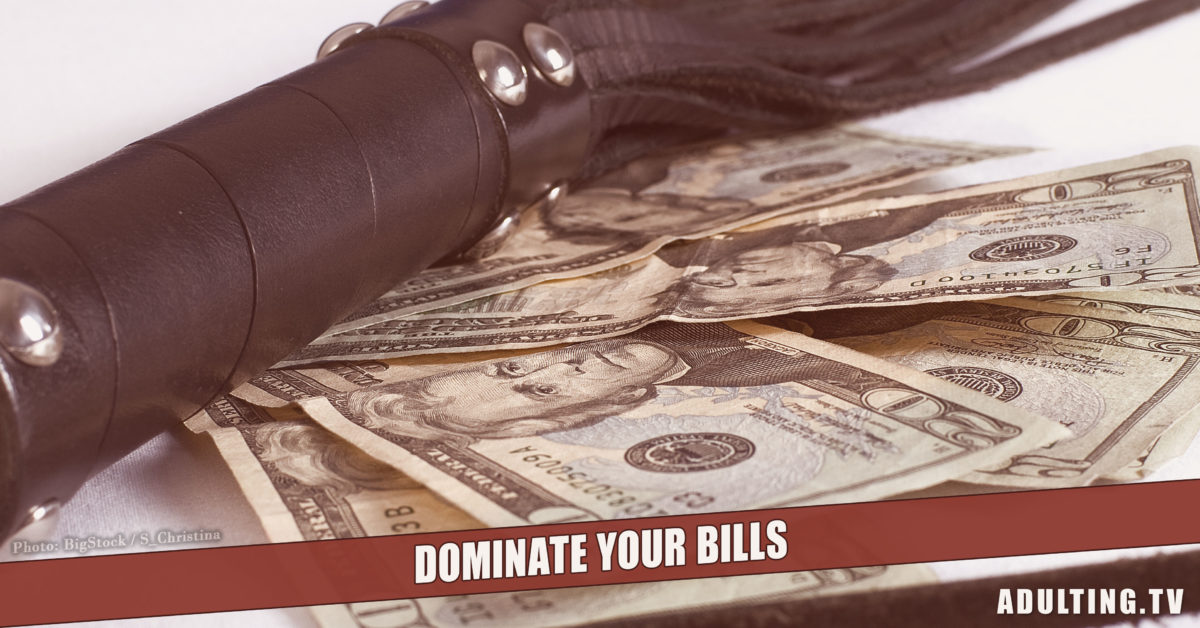Let’s face it. Your finances suck.
It’s ok, most people are in a similar position.
Staying perfectly on top of your budget, your investments, your income, and your expenses is like trying to juggle flaming chainsaws while brewing a cup of tea.
But much like juggling, balancing your financial responsibilities can be done. It just takes knowledge, practice and a little finesse.
Here are some of the problems holding you back from money greatness and what you can do about them.
You aren’t willing to change.
During my time as a personal finance blogger and writer, I’ve offered financial coaching on the side. I’ve counseled people who made $10 an hour and those who earned six figures a year. Before coaching, I thought the main problem most people faced was a lack of income.
Turns out I was wrong.
The biggest reason for my clients’ success was a willingness to change and improve financial habits – and vice versa. If you aren’t willing to eat out less, move to a cheaper apartment or find a part-time job, there’s not much I can do for you.
If you really want to pay off your credit card balance and don’t have enough in your current budget to do it, the answer is simple: change your lifestyle. If you refuse to do that, you’re just like an alcoholic who won’t admit they have a problem.
If this is you, don’t feel ashamed. Addictive spending is very real, and moving forward isn’t about bringing yourself down – it’s about realizing you have the power to build yourself up.
What to do: Change is hard, so start slow. If you eat out for lunch every day, try bringing in leftovers a couple times a week. If you often order take-out, make a big dinner to last you for a few days. As you get accustomed to your new lifestyle, each change will feel less and less noticeable.
You aren’t sure where the money’s going.
When I was a college senior, I decided I would start budgeting to prepare myself for “the real world.” I allocated $80 a month toward eating out, which averaged about one meal a week.
In two weeks, I had blown through my self-imposed limit. I called my mom, confused as to how I could have spent that money so quickly. She suggested I go through my bank statement to see where my money was going.
I was shocked at what I found. I was spending $150 a month on eating out and more than $200 on groceries. How was I spending so much on food without realizing it?
That’s when I learned the power of tracking my expenses.
If you don’t know where your money is going, you can’t control it. Like most people in this situation, I was consistently underestimating how much meals, groceries and other expenses were costing me. Once I started tallying those numbers, there was no excuse to overspend.
Any time I coach people on budgeting, I have them go through their bank and credit card accounts to add up how much they actually spend. Most people are surprised to find out how much they’re really spending compared to what they thought.
What to do about it: Find a tracking system that works for you. I use Mint.com, but others like the You Need a Budget software or the old-fashioned pen-and-paper method. Track every purchase you make, even if it’s $1.50 for a Coke at a gas station. Little purchases add up, especially when you’re unaware of your spending.
You want to live like your friends.
Peer pressure is a powerful behavioral catalyst. A 2016 study from Ryerson University in Toronto found that people who surround themselves with less-frugal friends tend to spend more.
Even when I was committed to paying off my student loans early, I had trouble saying no when I was out with my girlfriends. If I promised myself I’d avoid ordering food or more than one drink, I had trouble saying no if the people around me were doing it.
It can be even worse if your friends are encouraging you to overspend in other aspects of your life, like housing, transportation or traveling. That’s not even mentioning the inherent pressure that comes from comparing your lifestyle to friends who live extravagantly.
So how do you combat peer pressure without dropping your social circle?
What to do about it: If you’re going out, bring cash so you won’t spend more than you want to. Suggest having drinks at someone’s house instead of happy hour or a potluck in place of a restaurant dinner.
Tell your friends about your financial goals and how you’re trying to change. Some might be feeling the same way, but are too embarrassed to say anything.
And what if they start throwing shade? Well, those probably aren’t friends you want to keep around.
Bottom line.
There are some things we can’t change about how we got to our current place. But you can influence what happens next. Pinpoint the reasons behind your current problem. Acknowledge the reasons you suck at money.
And then take steps to make a change. It’s not always easy. It’s not always fun. But in the long run you’ll be happier — and have more money.
What’s your biggest money struggle? How are you working to overcome it? Let us know in the #Adulting Facebook community and see if you can find a few ideas you can use.






